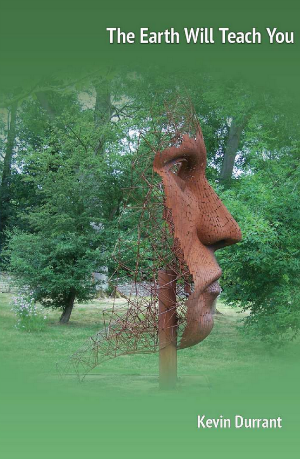The Earth Will Teach You
Baptist minister's excellent commentary on various biblical passages which help to discern the voices of the natural world
 The Earth Will Teach You
The Earth Will Teach You
By Kevin Durrant
Wide Margin Books
ISBN: 978-1908860071
Reviewed by John Weaver
This is an excellent commentary on selected biblical passages, which offers insight and creative engagement with the natural world and our life within it.
Kevin Durrant (a Baptist minister in Gloucester) tells us that the text began life as a series of sermons. Each of the resulting chapters provides the reader with material for discussion in Bible Study groups and for sermons.
The author explores the ways in which each biblical writer expresses their understanding of God’s presence in nature and of nature as our teacher. Through pertinent contemporary illustrations, stories and poetry, each of the chosen passages is brought to life in new ways.
Durrant challenges the reader to listen to the wisdom that comes through the voices of the natural world; for him the whole of creation is sacramental. His first sermon reflects on Balaam’s donkey who sees the danger, while Balaam’s pursuit of money has blinded him to God’s truth. Durrant comments that now the animals are warning us as we blindly travel towards environmental destruction.
In addressing the lesson of the soil from which we are formed and to which we will return, he helpfully suggests that our shoes are symbolic of our separation from the earth and our failure to respect the limits of nature, for example exceeding a 20C rise in average global surface temperature. He moves the argument forward as he discusses the cursed ground and our addiction to high consumption, which is preventing the ground in many poor countries from enjoying God’s blessing. He rightly maintains that an exhausted land is best addressed through God’s principles of Sabbath and Jubilee.
Durrant insightfully points out the value God places on the animals, the first place of Behemoth and Leviathan showing us God's pleasure and glory. But then when we consider the animals in Noah's Ark there are those that we would not have chosen to rescue because they are dangerous or annoying, yet to God they are all valuable.
Our worship of God is llikewise skewed; Abram worshipped God at the sacred oak (Gen.12:6), but we soon replaced God's presence in nature with human constrcuted temples (Acts 7:48--50). Durrant does not find this surprising as Jesus’ parable of the rich fool (Luke 12:13-21) demonstrates our lack of imagination, motivation and wisdom. Our focus is on ourselves and our selfish enjoyment of the world’s riches.
Durrant observes that in so doing we fail to hear the challenge to live out the ‘benevolent characteristics of our identity’ in Christ. We have changed the meaning of economy, derived from oikos (meaning household) and nemein (meaning manage), so that instead of community finances, fairness and justice, we have the bottom line of the company or political accounting. In the light of what we learn from creation, this author asks how we should live in consideration of God's gracious gift of the common goods. He challenges us to move from 'me' to 'everyone'.
Sadly, Durrant reflects that we don't hear the voices of nature because of our disconnection with the rhythms of God. He encourages us to benefit from the God-given rhythms of the seasons and of day and night, which our modern industrialised world has blurred. He concludes that we need to hear the wisdom that God offers to us through the voices of nature, for example God speaking to us through the decline and extinction of species.
His final thoughts are close to my heart as he draws a parallel between Hezekiah's buying off of the Babylonian threat in exchange for 15 years of personal peace and prosperity (2 Kings
18:13-16, 20:4-19) with our desire for several extra years of energy-rich living through the fracking of shale gas. Like Hezekiah we ignore the potential catastrophe. He concludes that we have the testimony of two witnesses: scriputre, and nature supported by science. He stresses that we will be foolish to turn deaf ears to the voices of nature, which are for us the voice of God.
I wholeheartedly commend this to preachers and teachers, and to anyone who wants to find biblical help in addressing environmental issues.
The Revd Dr John Weaver is the Chair of the John Ray Initiative: connecting environment, science and Christianity
He was President of the Baptist Union of Great Britain 2008-9.
This review was originally published in Regent’s Reviews, based at Regent’s Park College, Oxford. Regent’s Reviews is published every April and October and can be read at: http://www.rpc.ox.ac.uk/regents-reviews/
Baptist Times, 19/08/2016